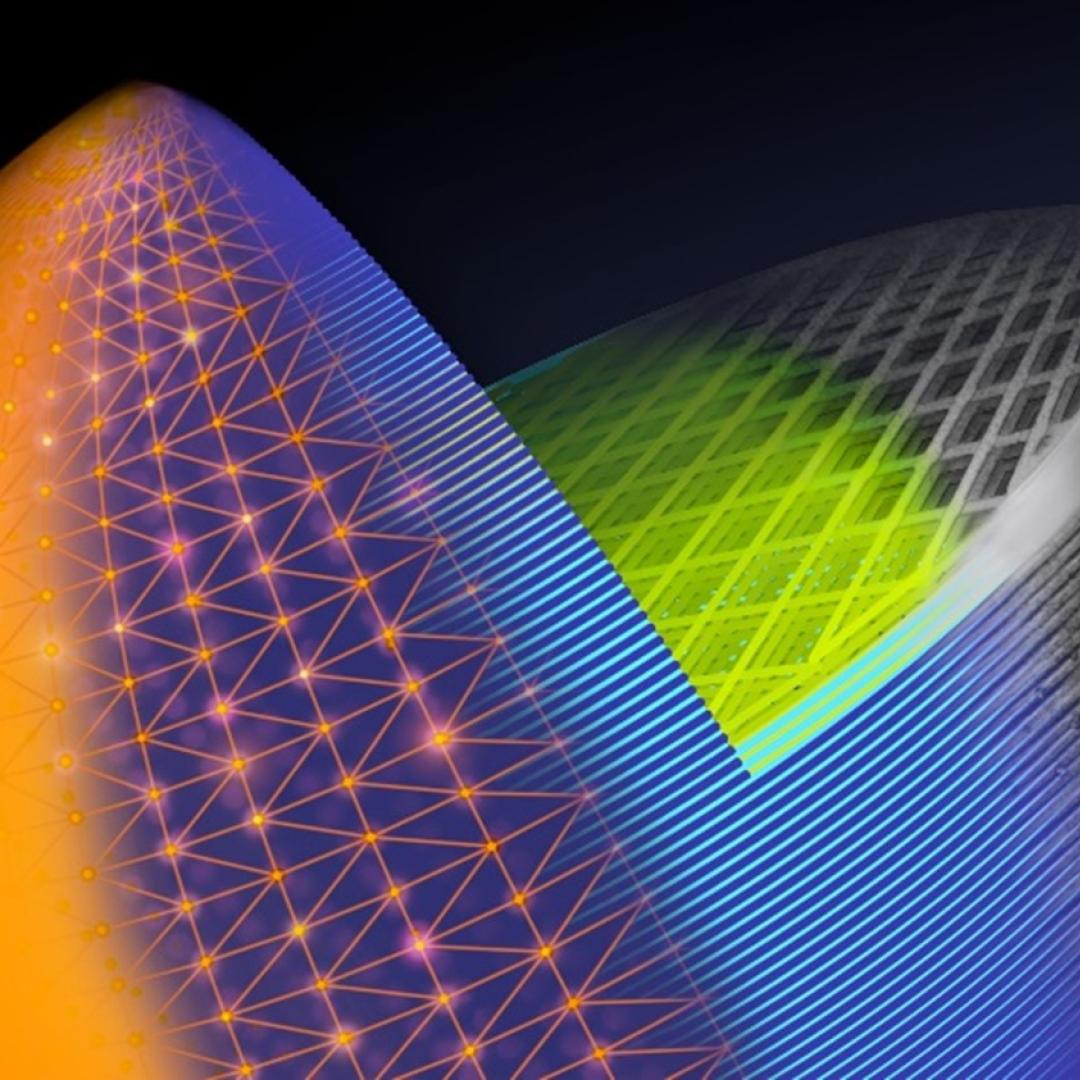
Filter News
Area of Research
- (-) Computational Engineering (1)
- (-) Materials (136)
- Advanced Manufacturing (5)
- Biological Systems (1)
- Biology and Environment (103)
- Biology and Soft Matter (4)
- Building Technologies (2)
- Chemical and Engineering Materials (3)
- Chemistry and Physics at Interfaces (7)
- Clean Energy (187)
- Climate and Environmental Systems (7)
- Computational Biology (1)
- Computational Chemistry (5)
- Computer Science (3)
- Data (1)
- Earth Sciences (1)
- Electricity and Smart Grid (1)
- Energy Frontier Research Centers (7)
- Fuel Cycle Science and Technology (2)
- Functional Materials for Energy (8)
- Fusion and Fission (33)
- Fusion Energy (7)
- Geographic Information Science and Technology (1)
- Isotope Development and Production (1)
- Isotopes (22)
- Materials for Computing (13)
- Materials Synthesis from Atoms to Systems (8)
- Materials Under Extremes (7)
- National Security (46)
- Neutron Data Analysis and Visualization (2)
- Neutron Science (74)
- Nuclear Science and Technology (29)
- Quantum Condensed Matter (3)
- Quantum information Science (4)
- Renewable Energy (2)
- Sensors and Controls (2)
- Supercomputing (155)
- Transportation Systems (4)
News Type
News Topics
- 3-D Printing/Advanced Manufacturing (4)
- Advanced Reactors (1)
- Artificial Intelligence (4)
- Big Data (2)
- Bioenergy (2)
- Biomedical (2)
- Buildings (1)
- Chemical Sciences (8)
- Clean Water (2)
- Composites (2)
- Computer Science (8)
- Coronavirus (1)
- Cybersecurity (1)
- Decarbonization (1)
- Energy Storage (7)
- Environment (6)
- Exascale Computing (1)
- Fusion (3)
- Grid (2)
- High-Performance Computing (1)
- Isotopes (6)
- Machine Learning (2)
- Materials (20)
- Materials Science (22)
- Mathematics (1)
- Microscopy (8)
- Nanotechnology (10)
- Neutron Science (10)
- Nuclear Energy (10)
- Partnerships (3)
- Physics (13)
- Polymers (5)
- Quantum Computing (1)
- Security (1)
- Space Exploration (1)
- Summit (1)
- Sustainable Energy (2)
- Transformational Challenge Reactor (2)
- Transportation (4)
Media Contacts
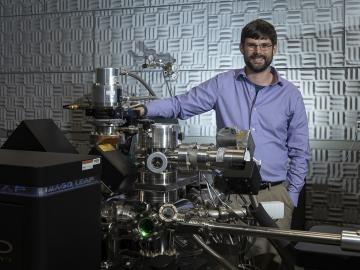
Jon Poplawsky, a materials scientist at the Department of Energy’s Oak Ridge National Laboratory, develops and links advanced characterization techniques that improve our ability to see and understand atomic-scale features of diverse materials
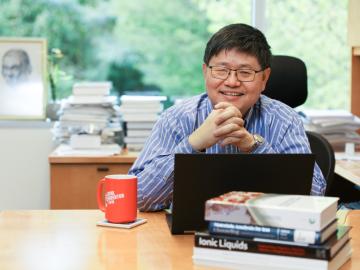
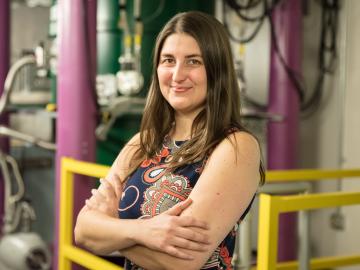
Leah Broussard, a physicist at the Department of Energy’s Oak Ridge National Laboratory, has so much fun exploring the neutron that she alternates between calling it her “laboratory” and “playground” for understanding the universe. “The neutron is special,” she said of the sub...
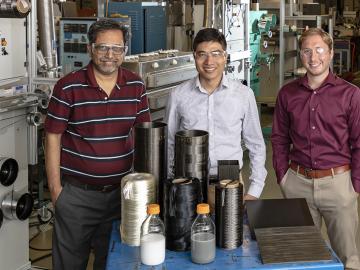
Carbon fiber composites—lightweight and strong—are great structural materials for automobiles, aircraft and other transportation vehicles. They consist of a polymer matrix, such as epoxy, into which reinforcing carbon fibers have been embedded. Because of differences in the mecha...


Lithium-ion batteries commonly used in consumer electronics are notorious for bursting into flame when damaged or improperly packaged. These incidents occasionally have grave consequences, including burns, house fires and at least one plane crash.
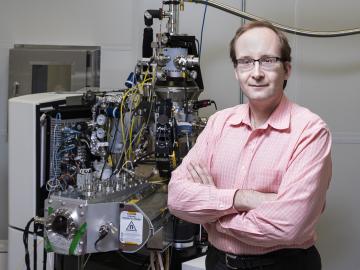
Sergei Kalinin of the Department of Energy’s Oak Ridge National Laboratory knows that seeing something is not the same as understanding it. As director of ORNL’s Institute for Functional Imaging of Materials, he convenes experts in microscopy and computing to gain scientific insigh...

The materials inside a fusion reactor must withstand one of the most extreme environments in science, with temperatures in the thousands of degrees Celsius and a constant bombardment of neutron radiation and deuterium and tritium, isotopes of hydrogen, from the volatile plasma at th...
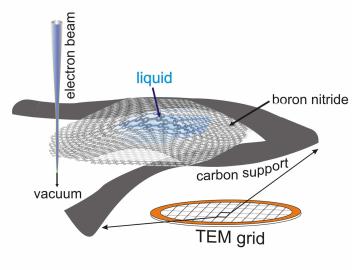
A new microscopy technique developed at the University of Illinois at Chicago allows researchers to visualize liquids at the nanoscale level — about 10 times more resolution than with traditional transmission electron microscopy — for the first time. By trapping minute amounts of...
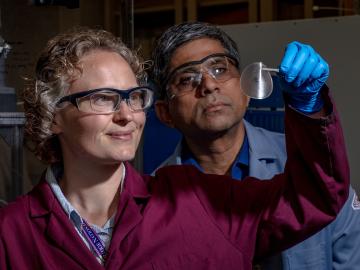
Oak Ridge National Laboratory scientists have developed a crucial component for a new kind of low-cost stationary battery system utilizing common materials and designed for grid-scale electricity storage. Large, economical electricity storage systems can benefit the nation’s grid ...


